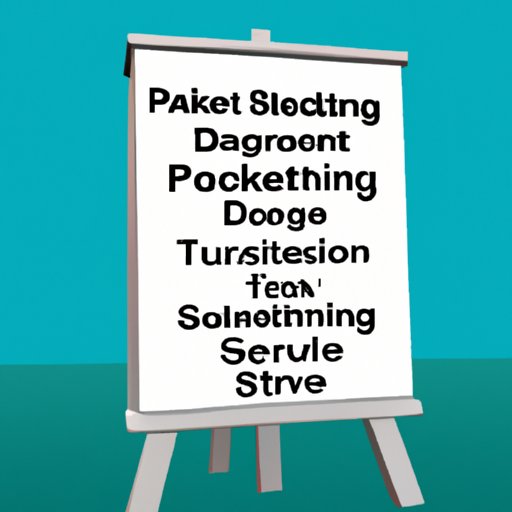Introduction
A hospitality business provides services and accommodations for travelers and tourists. It is an industry that includes hotels, resorts, bed and breakfasts, restaurants, catering companies, wineries, and other businesses that offer services to travelers. Starting a hospitality business can be a rewarding venture, both financially and personally. In this article, we will explore the steps necessary to start a successful hospitality business.

Outline the Basics of Starting a Hospitality Business
Before you begin the process of starting a hospitality business, it is important to do your research. You should familiarize yourself with current trends in the industry, as well as any regulations or laws that may apply. Additionally, you should understand the local market and customer base. This knowledge will help you determine the type of business you want to open and how you will differentiate yourself from competitors.
Once you have done your research, the next step is to create a business plan. A business plan is an essential document that outlines the goals and objectives of your business, as well as the strategies you will use to achieve them. Your business plan should also include a detailed description of your services and products, pricing strategy, and marketing plan.
The last step in outlining the basics of starting a hospitality business is to secure financing. You will need to find investors, apply for loans, and/or use your own funds to get your business off the ground.

Identify the Necessary Licenses and Permits for a Hospitality Business
Once you have outlined the basics of starting a hospitality business, the next step is to identify the necessary licenses and permits. Every business must comply with state and local regulations and obtain the appropriate permits. Depending on the type of hospitality business you are opening, there may be additional health and safety regulations, alcoholic beverage licenses, or other permits you will need to acquire.

Determine Your Target Market and Create a Unique Selling Proposition
Once you have obtained the necessary licenses and permits, the next step is to determine your target market and create a unique selling proposition (USP). Knowing your target market will help you tailor your services and products to meet their needs. Additionally, establishing a USP will help set your business apart from competitors.
Create a Detailed Business Plan for Your Hospitality Business
After you have identified your target market and created a USP, the next step is to create a detailed business plan. A business plan is a roadmap that outlines the goals and objectives of your business, as well as the strategies you will use to achieve them. When writing your business plan, you should include a description of your services and products, pricing strategy, and marketing plan.
“Creating a business plan allows you to think strategically about the future of your business,” says Entrepreneur magazine. “It forces you to consider all aspects of your business and evaluate your strengths and weaknesses.”
Find Financing and Secure the Necessary Funds to Start Your Business
The final step in starting a hospitality business is to find financing and secure the necessary funds. There are several sources of financing available, including banks, venture capitalists, angel investors, and government grants. Once you have identified potential sources of funding, you can apply for loans or seek out investors.
Conclusion
Starting a hospitality business can be a rewarding venture, both financially and personally. To get started, you should research current trends and regulations, understand the local market, develop a business plan, secure financing, identify the necessary licenses and permits, determine your target market, and create a unique selling proposition. With the right planning and dedication, you can turn your dream of owning a hospitality business into a reality.
(Note: Is this article not meeting your expectations? Do you have knowledge or insights to share? Unlock new opportunities and expand your reach by joining our authors team. Click Registration to join us and share your expertise with our readers.)
